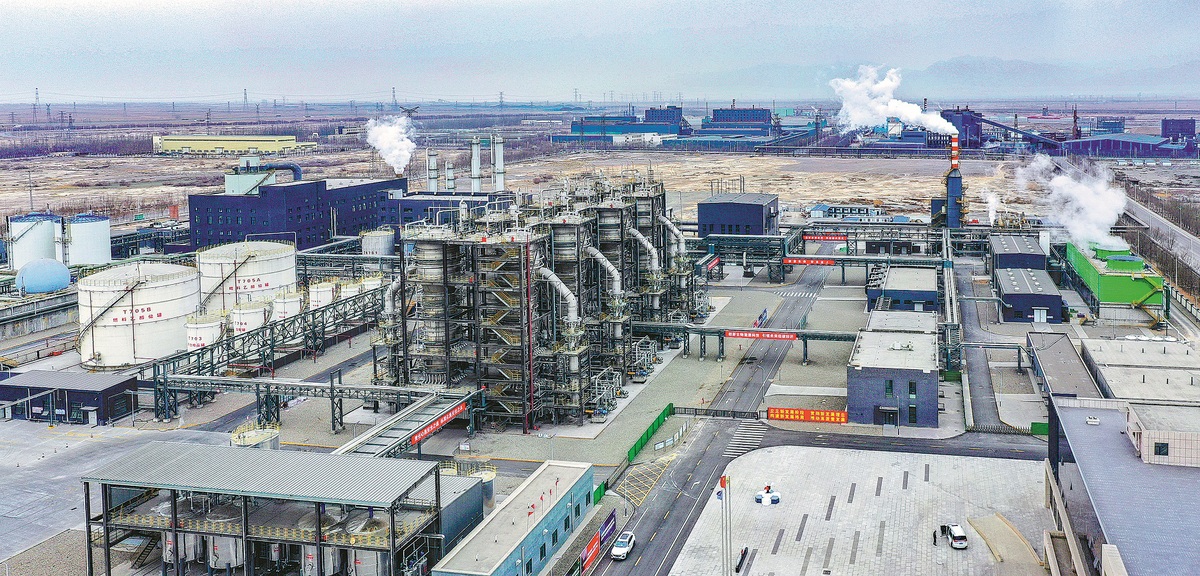Ningxia city buries its coal mining past for industries of the future
Shizuishan embraces green, advanced technologies, looks to innovation






Once known for environmental damage caused by excessive coal mining, Shizuishan in the Ningxia Hui autonomous region is transforming itself into a leader of industrial innovation with cutting-edge green technologies.
Ningxia Binze New Energy Technology Co is one of the companies at the cutting edge of these innovations. At its gas-processing plant in Pingluo county, vast volumes of industrial exhaust containing carbon monoxide are being treated and transformed into value-added products such as fuel and animal feed. This modern-day alchemy is not only profitable, but also good for the environment.
The city is a major production base for ferroalloy, calcium carbide and silicon carbide, and generates 3 billion cubic meters of industrial exhaust gas annually. In the past, the gas was used as thermal energy, which put pressure on the environment.
Nowadays, a large amount of that exhaust gas is sent to Ningxia Binze New Energy Technology's processing plant via a network of pipelines. The plant processes 400 million cubic meters of gas produced by arc furnaces every year, which reduces damaging carbon dioxide emissions by 240,000 metric tons.
After undergoing multiple processes such as fermentation using microbes, distillation, dehydration and protein separation, the gas is eventually transformed into high value-added products including nongrain ethanol fuel and fungal protein, which can be used to feed animals. As a result of the processing, 60,000 tons of non-grain ethanol fuel and 6,600 tons of protein feed are produced annually.
The processing method owes a lot to the latest advances in biological technology, which have played a significant role in the green transformation of Shizuishan's industries.
"We expect to help Shizuishan become an important non-grain raw material production base for clean liquid fuels and the capital of industrial exhaust fermentation in the northwestern region," said Zhang Haibo, chairman of the company, adding that it wants to contribute to the ecological protection and high-quality development of the Yellow River Basin.
Jia Wei, the company's general manager, added that the fungal protein produced annually is the equivalent of 200,000 tons of grain, and conserves approximately 36,700 hectares of arable land.
The ethanol fuel can be added to gasoline to help reduce vehicle exhaust emissions. It can also be used as a chemical raw material and processed into green products such as aviation fuel, packaging material and clothing, Jia said.
In 2023, the company's industrial output value was 220 million yuan ($30.4 million).




















